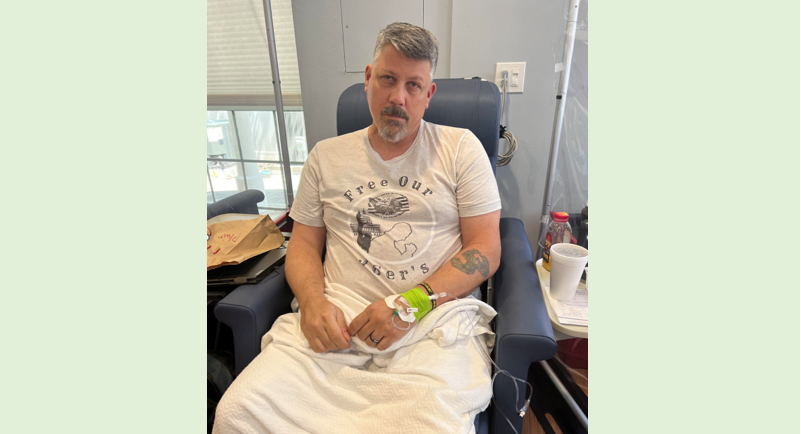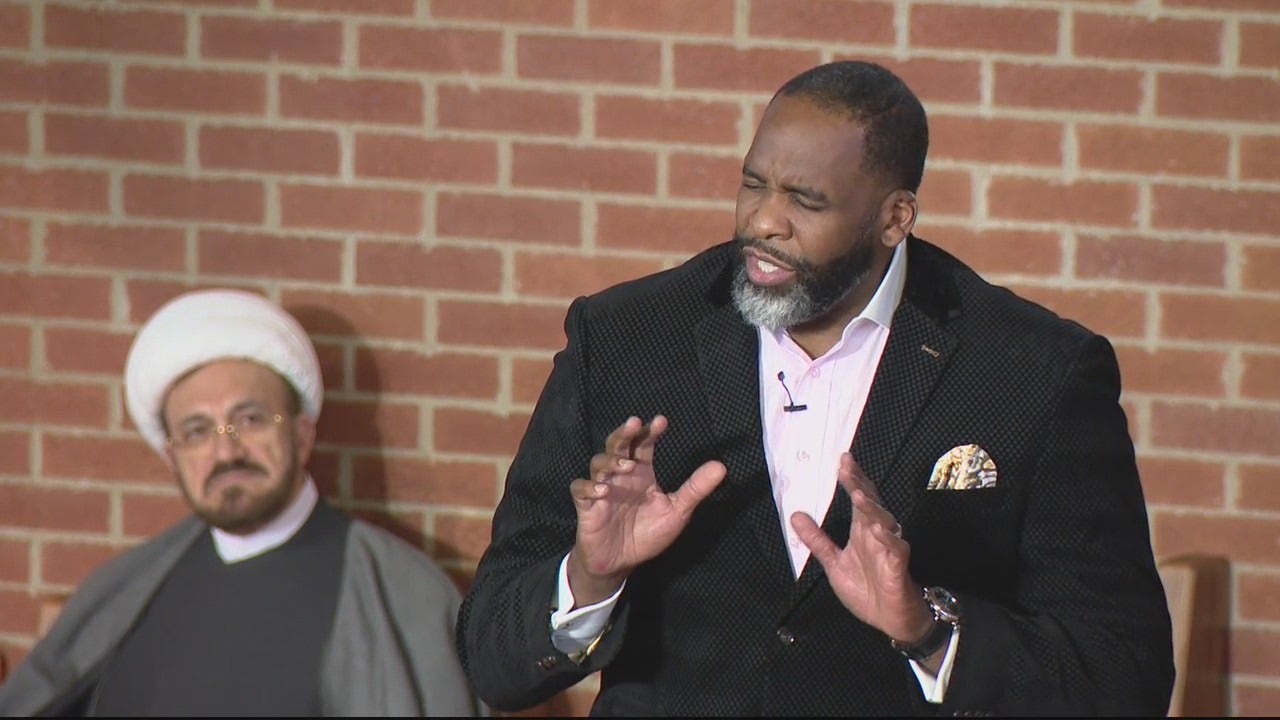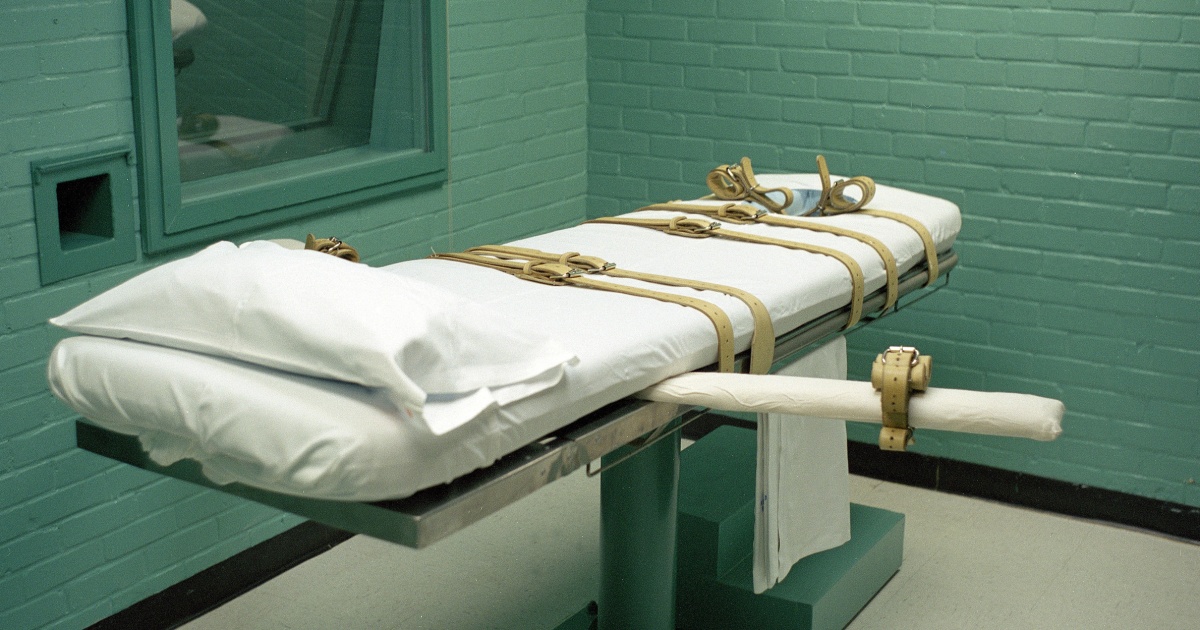Louisiana’s longest-serving female prisoner released after 50 years ‘a better version of herself’ | Crime/Police

When the Louisiana Pardon Board recommended Gloria Williams for clemency in 2019 after she had served almost a half-century behind bars for murder, her family started making plans to welcome back their matriarch. But two more years would pass before the governor signed her paperwork, bringing her another step closer to coming home.
The final step came Tuesday morning when the parole board granted her freedom.
Hours later, Williams walked out of prison and embraced her sons — now middle-aged men with children and grandchildren, decades removed from the boys she left behind — then clung to her younger sister.
She walked slowly into the chilly afternoon, her white hair tucked neatly beneath a headband and her lungs straining after two recent battles with COVID-19. She first contracted the virus during the earliest months of the pandemic, when it ravaged Louisiana prisons long before vaccines were available.
Gloria Williams, center, also known as ‘Mama Glo,’ is hugged by her sister Mary Moore, left, near the pedestrian entrance just after Williams was released from prison at Louisiana Correctional Institute for Women at Jetson, as her oldest son James Robertson, right, helps carry her belongings, after she was paroled earlier in the morning, Tuesday, Jan. 25, 2022. She was the longest-serving female prisoner in Louisiana, incarcerated for 51 years after she and two co-defendants were convicted in 1971 of killing an Opelousas grocer during an armed robbery. She also escaped from prison three times in the 70’s and tried again in 1985. Decades later, the pardon board agreed she had turned her life around and recommended her for clemency in 2019, and Gov. John Bel Edwards governor signed her clemency papers in 2021, before the parole board’s final hearing Tuesday.
The moment was bittersweet, a joyful cause for celebration after decades of heartbreak and regret.
“I never thought this would happen,” Williams said after climbing into the Mercedes SUV that would deliver her back home to Texas, where she plans to live with her son. Her newest great-grandchild had been born just hours earlier in Houston.
Williams, the longest-serving female prisoner in Louisiana, earned the nickname “Mama Glo” behind bars, a testament to her tendency to mentor younger women. After her 2019 recommendation for clemency, prisoner rights advocates launched a public relations campaign on her behalf that garnered widespread attention.
Williams was sentenced to life in the 1971 shooting death of Budge Cutrera Sr., a hard-working Opelousas grocer killed during an armed robbery involving Williams and four co-defendants. The group entered his store with an unloaded gun and knife, got into a struggle with Cutrera and his wife, and ultimately shot the man with his own gun, according to contemporary newspaper accounts.
Williams maintains that her female co-defendant pulled the trigger. That woman died in prison and the other three defendants have been released, advocates said.
Cutrera, 64, was weeks away from retirement when the tragedy unfolded, his relatives said during the Tuesday morning parole hearing, which was held over zoom. His son and two grandchildren voiced their opposition to Williams being released.
“Gloria had a tough life serving 50 years. Hers is a sad story,” said Michael Cutrera, the son. “Well, here is another sad story.”
He described how his parents worked extremely long hours at the store, often selling items on credit to help people out. Budge Cutrera would get home late, have a snack and fall asleep. He never took vacations.
“My dad was looking forward to retirement. … I was looking forward to quality time with my dad,” Michael Cutrera said. “That was cut short.”
Releasing Williams, he told the board, would mean “her nightmare is over but mine will continue forever.”
Duong “Calvin” Cao had served 17 years in prison on an attempted murder conviction when he went before the Louisiana pardon board in 2015 and …
Long before the crime that landed her in prison, Williams had experienced a host of struggles and mistakes. According to her clemency application, she was the daughter of Church Point sharecroppers. Growing up in extreme poverty, she got married at 14 — her husband was 20 — and had her first child the following year. Another four children followed.
She left her husband after discovering his infidelity, then remarried to a man who ended up brutally abusing her, including once shooting her in the hand. She also became addicted to drugs because he would force them upon her, according to the application.
When Williams decided to rob the Opelousas grocery store in 1971, her second husband was locked up on armed robbery charges. He demanded money to pay a lawyer, and Williams feared the consequences of ignoring his demand, her attorneys wrote.
On Tuesday, she faced her victims for the first time.
“I cannot change the pain that I’ve caused the Cutrera family. I wish I could,” she said during the hearing. “Saying I’m sorry is not enough; I have to live with what I’ve done.”
Williams paused part way through her statement, collecting her voice, then addressed the Cutrera family directly. Her words tumbled out as she struggled to articulate the depth of their loss — and the depth of her remorse.
Her sister Mary Moore said Williams spent the following decades reforming herself, participating in virtually every program available behind bars.
“Gloria has shown us through the years that she was able to lace up her bootstraps and do the work to become a better version of the person she was,” Moore told the board.
Though her last prison disciplinary write-up was issued 14 years ago, Williams became known as a rule-breaker from the start. She successfully escaped three times, once making it to Houston, where she was arrested on an unrelated armed robbery.
She served about eight years in a Texas prison for that crime before returning to Louisiana to resume her life sentence. In 1985, she tried again to leave, injuring a correctional officer in the process. She was quickly captured and convicted of simple escape.
Those days are long gone, her attorney said Tuesday. Now 76, Williams requires oxygen treatment after a three-week hospital stay with COVID in 2020, when many feared she would die behind bars.
This article was published in partnership with The Marshall Project, a nonprofit news organization covering the U.S. criminal justice system. …
Moore and other relatives, along with advocates and attorneys, gathered at the Watermark Hotel in downtown Baton Rouge to watch the parole hearing together Tuesday morning. They wore matching shirts and masks printed with photos of Williams.
Despite opposition from the Cutrera family, the board voted unanimously in favor of supervised release, saying Williams has demonstrated remarkable growth and poses little risk to public safety.
“My job is not to look at the person who did this horrible thing 50-odd years ago, but to look at the person here today,” said board member Sheryl Ranatza, casting the first vote.
Once the video call had ended, the roomful of supporters erupted in cheers, chanting “Free Mama Glo.”
“I’m elated, it’s just now setting in,” said her youngest son, Darrell Robertson, who was a toddler in 1971. “It was like a dream at first. Now we can celebrate.”
Louisiana’s longest serving female prisoner was one step away from earning release after almost five decades behind bars when she was hospital…
When Williams was convicted and sentenced, so-called lifers became parole eligible after 10 years and six months in Louisiana. But a series of legislative changes gradually delayed eligibility before finally eliminating it entirely. For the roughly 4,200 people currently serving life in Louisiana — which imposes such sentences at one of the highest rates in the nation — their only chance at relief comes through the clemency process, which sets an exceedingly high bar.
Fox Rich, co-founder of the advocacy group PDMNola that worked to get Williams released, said the number of Louisianans ultimately granted clemency amounts to “a drop in the bucket.” But she was celebrating Tuesday after Williams landed on the list.
“After more than 50 years in prison, her continued incarceration does not benefit society,” said Andrew Hundley, executive director of the Louisiana Parole Project, which provides support services for prisoners released after decades behind bars. “Her case should serve as a reminder that life and other extreme sentences … come at a great social and financial cost, and the current system needs to be reconsidered by our legislature.”
When police questioned Carolyn Moore about two insurance salesmen killed during an armed robbery, she confessed without hesitation, confident …

:format(jpeg)/cloudfront-us-east-1.images.arcpublishing.com/tgam/EB2UUBRG4RIVRJC5DF5JCLQTJQ.jpg)


